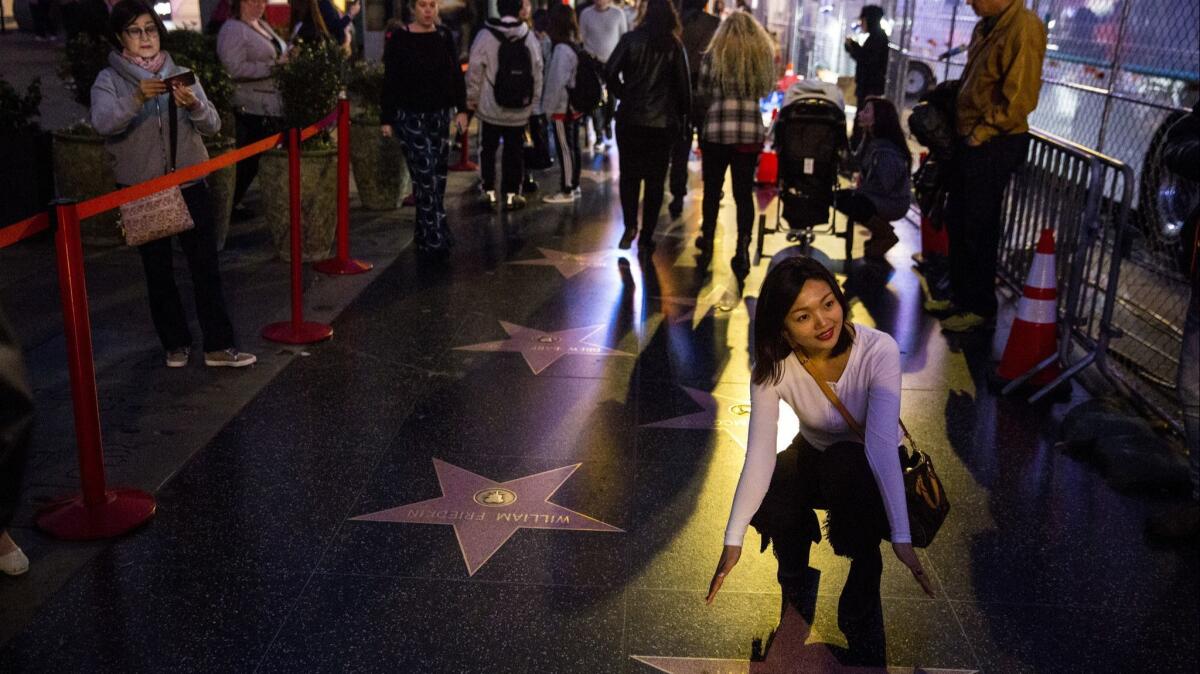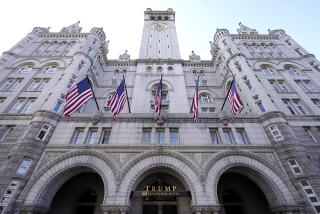Revised data show international visits to the U.S. up slightly despite Trump effect

- Share via
Federal officials released revised data Wednesday that found the number of international travelers to the U.S. grew by 0.7% in 2017 over the previous year, despite steep drops from Mexico and the Middle East.
The 77 million international visitors spent a record $251.4 billion on hotels, travel, food and souvenirs, a 2% increase over 2016, according to the National Travel and Tourism Office.
The small increase in visitors follows a reported sharp slowdown that began in 2016, which many travel and tourism industry leaders attributed partly to harsh rhetoric against Mexicans and Muslims by then-candidate and current President Donald Trump.
Before Trump’s election, the number of international visitors had been climbing steadily, starting in late 2009. The rate of growth increased by as much as 8.9% a year until late in 2015, according to federal statistics.
The slowdown prompted travel and tourism leaders to launch campaign efforts to appeal to foreign visitors.
But in April, the tourism office stopped releasing visitation numbers, saying it had discovered that 4.5 million records from U.S. Customs and Border Protection had been misclassified.
The office said in April that the mistake resulted from “a meaningful and increasing number of non-U.S. citizens traveling on visas to the United States being categorized as U.S. residents.”
After adjusting for the mistake, the numbers reported Wednesday found slightly more visitors came to the country in 2016 and 2017. Instead of a 2.4% decrease in 2016, the agency now reports a 1.8% drop in visitors, compared with the previous year.
For last year, the revised numbers show an increase of 0.7% instead of a drop of 1.8% compared with 2016.
Last year, the biggest drop-off in international visitors — 12% — came from Middle Eastern countries, with a 6% decline from Mexico.
Despite the relative improvement, Roger Dow, chief executive of the U.S. Travel Assn., said the data show that the U.S. is not keeping pace with a surge in international travel.
“U.S. market share has eroded, which means we are not adequately harnessing global travel growth to keep adding jobs and exports to the U.S. balance sheet,” said Dow, whose group represents hotels, travel agents and others in the industry.
To read more about the travel and tourism industries, follow @hugomartin on Twitter.
More to Read
Inside the business of entertainment
The Wide Shot brings you news, analysis and insights on everything from streaming wars to production — and what it all means for the future.
You may occasionally receive promotional content from the Los Angeles Times.











